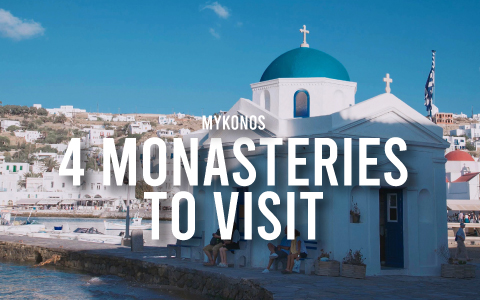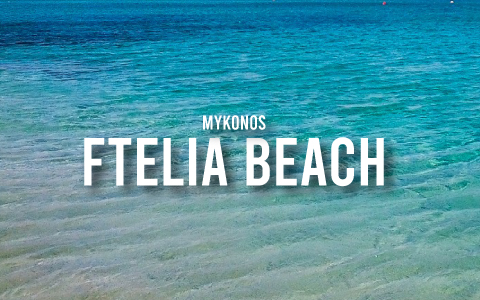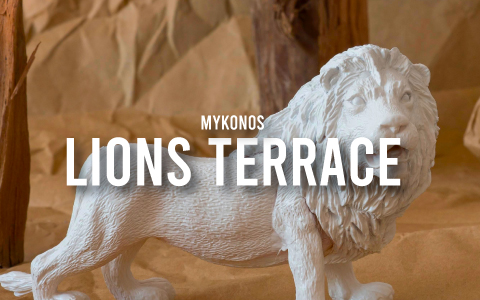
4 Must-Visit Monasteries in Mykonos
Did you know that Mykonos is home to an extraordinary number of religious buildings? The island counts between 500 and 800 churches, chapels, and monasteries, so many that locals like to say there is “one church for every day of the year.” In Chora, the island’s historic center, you can find more than 60 churches alone. Among these sacred sites, the monasteries hold a special place, with dozens of historic and architecturally significant landmarks that offer a deeper look into the cultural and spiritual heart of the island.
The Monasteries in Mykonos You Shouldn’t Miss
Many of its most beautiful and fascinating monasteries are located in the peaceful inland village of Ano Mera, far from the lively atmosphere of Mykonos Town. If you want to explore them all without rushing, it’s best to rent a scooter or car. In just half a day, you can comfortably visit 4 of these remarkable sites while enjoying the island’s more tranquil side.
Panagia Tourliani Monastery – Ano Mera
Located in the very heart of Ano Mera, Panagia Tourliani is one of the island’s most important spiritual and architectural landmarks.
Founded in 1542 by monks from a monastery on the nearby island of Paros, it was beautifully restored in 1767, acquiring the elegant appearance we see today.
The church, dedicated to the Dormition of the Virgin Mary, is a stunning example of Cycladic architecture, featuring a finely carved marble façade and an impressive 19th-century bell tower.
Inside, visitors are greeted by a magnificent wood-carved iconostasis crafted by Florentine artisans, as well as a rich collection of Byzantine and Renaissance icons and gold-embroidered sacred textiles.
Every year on 15 August, the monastery hosts the celebrations for the feast of the Dormition, attracting pilgrims and travelers from all Greece and abroad.
Paleokastro Monastery – Ano Mera
Not far from Panagia Tourliani, in one of the greenest areas of Mykonos, lies the Paleokastro Monastery. Perched on a hill, it offers gorgeous panoramic views of the surrounding countryside.
Built in the 18th century, it takes its name from the nearby medieval Gyzi castle, which the Venetians constructed to defend the island against pirate attacks.
The monastery itself reflects the traditional Cycladic style, with whitewashed walls and a peaceful atmosphere that invites contemplation and quiet reflection. Adding a touch of mystery to the site, a large granite slab—a prehistoric menhir—can be found right next to the monastery, making this visit even more fascinating for history enthusiasts.
Agios Panteleimonas Monastery – Marathi
Situated in the village of Marathi, the Agios Panteleimonas Monastery was founded in 1665 by the monks Kabourakis and Gerasimos, during the period of Ottoman occupation.
Dedicated to the Dormition of the Virgin Mary, the monastery is notable for its defensive architecture, featuring thick protective walls and a strategic position chosen for security reasons.
Inside the church, you’ll find beautiful frescoes dating back to 1820 and a richly decorated iconostasis that reflects the artistic traditions of the time. Every year on 27 July, the monastery hosts a large celebration in honor of Saint Panteleimon, drawing numerous faithful and curious visitors alike.
Agios Georgios Monastery – Ampelokipos
For those seeking a more intimate and authentic experience, the Agios Georgios Monastery, in the quiet village of Ampelokipos, offers a glimpse into the island’s deep-rooted spirituality.
Unlike the more famous monasteries, this small Orthodox church is tucked away amid olive groves and vineyards, creating a serene and picturesque setting.
While it is less known than other sites, it holds a special place in the hearts of the local community. Religious celebrations here, especially during Easter, bring together residents and visitors in an atmosphere of devotion and cultural tradition, making it an ideal spot for travelers who want to connect with Mykonos beyond its beaches and nightlife.



